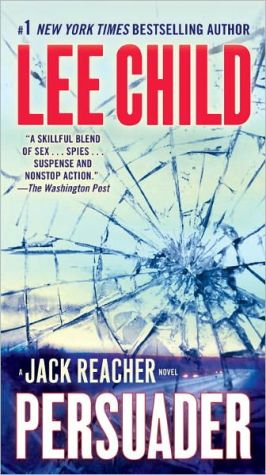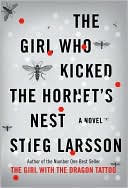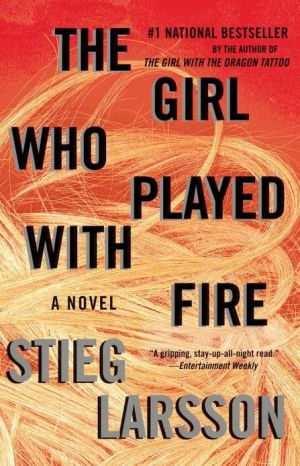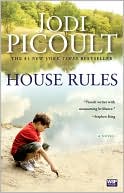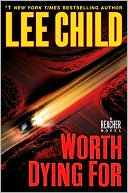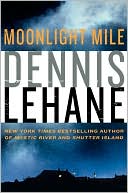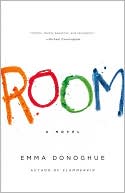Persuader (Jack Reacher Series #7)
Jack Reacher.\ The ultimate loner.\ An elite ex-military cop who left the service years ago, he’s moved from place to place…without family…without possessions…without commitments.\ And without fear. Which is good, because trouble—big, violent, complicated trouble—finds Reacher wherever he goes. And when trouble finds him, Reacher does not quit, not once…not ever.\ But some unfinished business has now found Reacher. And Reacher is a man who hates unfinished business.\ Ten years ago, a key...
Search in google:
Jack Reacher.The ultimate loner.An elite ex-military cop who left the service years ago, he's moved from place to place without family without possessions without commitments..And without fear. Which is good, because trouble big, violent, complicated trouble finds Reacher wherever he goes.Entertainment Weeklythe story is...as tightly wound as Reacher himself
Chapter One\ The cop climbed out of his car exactly four minutes before he got shot. He moved like he knew his fate in advance. He pushed the door against the resistance of a stiff hinge and swiveled slowly on the worn vinyl seat and planted both feet flat on the road. Then he grasped the door frame with both hands and heaved himself up and out. He stood in the cold clear air for a second and then turned and pushed the door shut again behind him. Held still for a second longer. Then he stepped forward and leaned against the side of the hood up near the headlight.\ The car was a seven-year-old Chevy Caprice. It was black and had no police markings. But it had three radio antennas and plain chrome hubs. Most cops you talk to swear the Caprice is the best police vehicle ever built. This guy looked like he agreed with them. He looked like a veteran plain-clothes detective with the whole of the motor pool at his disposal. Like he drove the ancient Chevy because he wanted to. Like he wasn’t interested in the new Fords. I could see that kind of stubborn old-timer personality in the way he held himself. He was wide and bulky in a plain dark suit made from some kind of heavy wool. He was tall but stooped. An old man. He turned his head and looked north and south along the road and then craned his thick neck to glance back over his shoulder at the college gate. He was thirty yards away from me.\ The college gate itself was purely a ceremonial thing. Two tall brick pillars just rose up from a long expanse of tended lawn behind the sidewalk. Connecting the pillars was a high double gate made from iron bars bent and folded and twisted into fancy shapes. It was shiny black. It looked like it had just been repainted. It was probably repainted after every winter. It had no security function. Anybody who wanted to avoid it could drive straight across the lawn. It was wide open, anyway. There was a driveway behind it with little knee-high iron posts set eight feet back on either side. They had latches. Each half of the gate was latched into one of them. Wide open. The driveway led on down to a huddle of mellow brick buildings about a hundred yards away. The buildings had steep mossy roofs and were overhung by trees. The driveway was lined with trees. The sidewalk was lined with trees. There were trees everywhere. Their leaves were just about coming in. They were tiny and curled and bright green. Six months from now they would be big and red and golden and photographers would be swarming all over the place taking pictures of them for the college brochure.\ Twenty yards beyond the cop and his car and the gate was a pickup truck parked on the other side of the road. It was tight against the curb. It was facing toward me, fifty yards away. It looked a little out of place. It was faded red and had a big bull bar on the front. The bar was dull black and looked like it had been bent and straightened a couple of times. There were two men in the cab. They were young, tall, clean-cut, fair-haired. They were just sitting there, completely still, gazing forward, looking at nothing in particular. They weren’t looking at the cop. They weren’t looking at me.\ I was set up to the south. I had an anonymous brown panel van parked outside a music store. The store was the kind of place you find near a college gate. It had used CDs in racks out on the sidewalk and posters in the windows behind them advertising bands people have never heard of. I had the van’s rear doors open. There were boxes stacked inside. I had a sheaf of paperwork in my hands. I was wearing a coat, because it was a cold April morning. I was wearing gloves, because the boxes in the van had loose staples where they had been torn open. I was wearing a gun, because I often do. It was wedged in my pants, at the back, under the coat. It was a Colt Anaconda, which is a huge stainless steel revolver chambered for the .44 Magnum cartridge. It was thirteen and a half inches long and weighed almost four pounds. Not my first choice of weapon. It was hard and heavy and cold and I was aware of it all the time.\ I paused in the middle of the sidewalk and looked up from my papers and heard the distant pickup’s engine start. It stayed where it was, just idling. White exhaust pooled around its rear wheels. The air was cold. It was early and the street was deserted. I stepped behind my van and glanced down the side of the music store toward the college buildings. Saw a black Lincoln Town Car waiting outside one of them. There were two guys standing next to it. I was a hundred yards away but neither one of them looked like a limo driver. Limo drivers don’t come in pairs and they don’t look young and heavy and they don’t act tense and wary. These guys looked exactly like bodyguards.\ The building the Lincoln was waiting outside of looked like some kind of a small dormitory. It had Greek letters over a big wooden door. I watched and the big wooden door opened up and a young thin guy stepped out. He looked like a student. He had long messy hair and was dressed like a homeless person but carried a bag that looked like shiny expensive leather. One of the bodyguards stood point while the other held the car door and the young thin guy tossed his bag onto the back seat and slid right in after it. He pulled the door shut behind himself. I heard it slam, faint and muffled from a hundred yards away. The bodyguards glanced around for a second and then got in the front together and a short moment later the car moved away. Thirty yards behind it a college security vehicle snuffled slowly in the same direction, not like it was intending to make up a convoy but like it just happened to be there anyway. There were two rent-a-cops in it. They were slumped down low in their seats and they looked aimless and bored.\ I took my gloves off and tossed them into the back of my van. Stepped out into the road where my view was better. I saw the Lincoln come up the driveway at a moderate speed. It was black and shiny and immaculate. It had plenty of chrome on it. Plenty of wax. The college cops were way behind it. It paused at the ceremonial gate and turned left and came south toward the black police Caprice. Toward me.\ What happened next occupied eight seconds, but it felt like the blink of an eye.\ The faded red pickup moved off the curb twenty yards back. It accelerated hard. It caught up with the Lincoln and pulled out and passed it exactly level with the cop’s Caprice. It came within a foot of the cop’s knees. Then it accelerated again and pulled a little ways ahead and its driver swung the wheel hard and the corner of the bull bar smashed square into the Lincoln’s front fender. The pickup driver kept the wheel turned and his foot hard down and forced the Lincoln off the road onto the shoulder. The grass tore up and the Lincoln slowed radically and then hit a tree head-on. There was the boom of metal caving and tearing and headlight glass shattering and there was a big cloud of steam and the tree’s tiny green leaves shook and quivered noisily in the still morning air.\ Then the two guys in the pickup came out shooting. They had black machine pistols and were firing them at the Lincoln. The sound was deafening and I could see arcs of spent brass raining down on the blacktop. Then the guys were pulling at the Lincoln’s doors. Hauling them open. One of them leaned into the back and started dragging the thin kid out. The other was still firing his gun into the front. Then he reached into his pocket left-handed and came out with some kind of a grenade. Tossed it inside the Lincoln and slammed the doors and grabbed his buddy and the kid by the shoulders and turned them away and hauled them down into a crouch. There was a loud bright explosion inside the Lincoln. All six windows shattered. I was more than twenty yards away and felt every bit of the concussion. Pebbles of glass blew everywhere. They made rainbows in the sun. Then the guy who had tossed the grenade scrambled up and sprinted for the passenger side of the pickup and the other straight-armed the kid inside the cab and crowded right in after him. The doors slammed shut and I saw the kid trapped in there on the center seat. I saw terror in his face. It was white with shock and right through the dirty windshield I saw his mouth opening in a silent scream. I saw the driver working the gears and heard the engine roaring and the tires squealing and then the truck was coming directly at me.\ It was a Toyota. I could see toyota on the grille behind the bull bar. It rode high on its suspension and I could see a big black differential at the front. It was the size of a soccer ball. Four-wheel drive. Big fat tires. Dents and faded paint that hadn’t been washed since it left the factory. It was coming straight at me.\ I had less than a second to decide.\ I flipped the tail of my coat and pulled out the Colt. Aimed very carefully and fired once at the Toyota’s grille. The big gun flashed and roared and kicked in my hand. The huge .44 slug shattered the radiator. I fired again at the left front tire. Blew it out in a spectacular explosion of black rubber debris. Yards of blown tread whipped through the air. The truck slewed and stopped with the driver’s side facing me. Ten yards away. I ducked behind the back of my van and slammed the rear doors and came out on the sidewalk and fired again at the left rear tire. Same result. Rubber everywhere. The truck crashed down on its left-side rims at a steep angle. The driver opened his door and spilled out on the blacktop and scrambled up on one knee. He had his gun in the wrong hand. He juggled it across and I waited until I was fairly sure he was going to point it at me. Then I used my left hand to cradle my right forearm against the Colt’s four-pound weight and aimed carefully at center mass like I had been taught a long time ago and pulled the trigger. The guy’s chest seemed to explode in a huge cloud of blood. The skinny kid was rigid inside the cab. Just staring in shock and horror. But the second guy was out of the cab and scrambling around the front of the hood toward me. His gun was coming around at me. I swiveled left and paused a beat and cradled my forearm. Aimed at his chest. Fired. Same result. He went down on his back behind the fender in a cloud of red vapor.\ Now the skinny kid was moving in the cab. I ran for him and pulled him out right over the first guy’s body. Ran him back to my van. He was limp with shock and confusion. I shoved him into the passenger seat and slammed the door on him and spun around and headed for the driver’s side. In the corner of my eye I saw a third guy coming right at me. Reaching into his jacket. Some tall heavy guy. Dark clothes. I braced my arm and fired and saw the big red explosion in his chest at exactly the same split second I realized it was the old cop from the Caprice and he had been reaching into his pocket for his badge. The badge was a gold shield in a worn leather holder and it flew up out of his hand and tumbled end over end and landed hard against the curb right in front of my van.\ Time stood still.\ I stared at the cop. He was on his back in the gutter. His whole chest was a mess of red. It was all over him. There was no welling or pumping. No sign of a heartbeat. There was a big ragged hole in his shirt. He was completely still. His head was turned and his cheek was hard against the blacktop. His arms were flung out and I could see pale veins in his hands. I was aware of the blackness of the road and the vivid green of the grass and the bright blue of the sky. I could hear the thrill of the breeze in the new leaves over the gunshots still roaring in my ears. I saw the skinny kid staring out through my van’s windshield at the downed cop and then staring at me. I saw the college security cruiser coming left out of the gate. It was moving slower than it should have been. Dozens of shots had been fired. Maybe they were worried about where their jurisdiction began and where it ended. Maybe they were just scared. I saw their pale pink faces behind their windshield. They were turned in my direction. Their car was doing maybe fifteen miles an hour. It was crawling straight at me. I glanced at the gold shield in the gutter. The metal was worn smooth by a lifetime of use. I glanced at my van. Stood completely still. One thing I learned a long time ago is that it’s easy enough to shoot a man. But there’s absolutely no way to unshoot one.\ I heard the college car rolling slowly toward me. Heard its tires crushing grit on the blacktop. Everything else was silence. Then time restarted and a voice in my head screamed go go go and I ran for it. I scrambled into the van and threw the gun down on the middle seat and fired up the engine and pulled a U-turn so hard we came up on two wheels. The skinny kid was thrown all over the place. I got the wheel straight and stamped on the gas and took off south. I had a limited view in the mirror but I saw the college cops light up their roof bar and come right after me. The kid next to me was totally silent. His mouth was hanging open. He was concentrating on staying in his seat. I was concentrating on accelerating as hard as I could. Traffic was mercifully light. It was a sleepy New England town, early in the morning. I got the van wound up to about seventy miles an hour and tightened my hands on the wheel until my knuckles showed white and just stared at the road ahead, like I didn’t want to see what was behind me.\ “How far back are they?” I asked the kid.\ He didn’t respond. He was slack with shock and crunched up in the corner of his seat, as far away from me as he could get. He was staring at the roof. He had his right hand braced against the door. Pale skin, long fingers.\ “How far back?” I asked again. The engine was roaring loud.\ “You killed a cop,” he said. “That old guy was a cop, you know.”\ “I know.”\ “You shot him.”\ “Accident,” I said. “How far back are the others?”\ “He was showing you his badge.”\ “How far back are the others?”\ He stirred himself and turned around and ducked his head so he could line up the view out of the small rear windows.\ “Hundred feet,” he said. He sounded vague and scared. “Real close. One of them is hanging out the window with a gun.”\ Right on cue I heard the distant pop of a handgun over the roar of the engine and the whine of the tires. I picked up the Colt from the seat beside me. Dropped it again. It was empty. I had fired six times already. A radiator, two tires, two guys. And one cop.
\ From Barnes & NobleThe Fan Letter by Lee Child \ They say the past is another country, and in my case it really was: provincial England at the end of the fifties and the start of the sixties, the last gasp of the post-war era, before it surrendered to the tectonic shift sparked by the Beatles. My family was neither rich nor poor, not that either condition had much meaning in a society with not much to buy and not much to lack. We accumulated toys at the rate of two a year: one on our birthdays, and one at Christmas. We had a big table radio (which we called "the wireless") in the dining room, and in the living room we had a black and white fishbowl television, full of glowing tubes, but there were only two channels, and they went off the air at ten in the evening, after playing the National Anthem, for which some families stood up, and sometimes we saw a double bill at the pictures on a Saturday morning, but apart from that we had no entertainment.\ So we read books. As it happens I just saw some old research from that era which broke down reading habits by class (as so much was categorized in England at that time) and which showed that fully fifty percent of the middle class regarded reading as their main leisure activity. The figure for skilled workers was twenty-five percent, and even among laborers ten percent turned to books as a primary choice.\ Not that we bought them. We used the library. Ours was housed in a leftover WW2 Nissen hut (the British version of a Quonset hut) which sat on a bombed-out lot behind a church. It had a low door and a unique warm, musty, dusty smell, which I think came partly from the worn floorboards and partly from the books themselves, of which there were not very many. I finished with the children's picture books by the time I was four, and had read all the chapter books by the time I was eight, and had read all the grown-up books by the time I was ten.\ Not that I was unique - or even very bookish. I was one of the rough kids. We fought and stole and broke windows and walked miles to soccer games, where we fought some more. We were covered in scabs and scars. We had knives in our pockets - but we had books in our pockets too. Even the kids who couldn't read tried very hard to, because we all sensed there was more to life than the gray, pinched, post-war horizons seemed to offer. Traveling farther than we could walk in half a day was out of the question - but we could travel in our heads ... to Australia, Africa, America ... by sea, by air, on horseback, in helicopters, in submarines. Meeting people unlike ourselves was very rare ... but we could meet them on the page. For most of us, reading - and imagining, and dreaming - was as useful as breathing.\ My parents were decent, dutiful people, and when my mother realized I had read everything the Nissen hut had to offer - most of it twice - she got me a library card for a bigger place the other side of the canal. I would head over there on a Friday afternoon after school and load up with the maximum allowed - six titles - which would make life bearable and get me through the week. Just. Which sounds ungrateful - my parents were doing their best, no question, but lively, energetic kids needed more than that time and place could offer. Once a year we went and spent a week in a trailer near the sea - no better or worse a vacation than anyone else got, for sure, but usually accompanied by lashing rain and biting cold and absolutely nothing to do.\ The only thing that got me through one such week was Von Ryan's Express by David Westheimer. I loved that book. It was a WW2 prisoner-of-war story full of tension and suspense and twists and turns, but its biggest "reveal" was moral rather than physical - what at first looked like collaboration with the enemy turned out to be resistance and escape. I read it over and over that week and never forgot it.\ Then almost forty years later, when my own writing career was picking up a head of steam, I got a fan letter signed by a David Westheimer. The handwriting was shaky, as if the guy was old. I wondered, could it be? I wrote back and asked, are you the David Westheimer? Turned out yes, it was. We started a correspondence that lasted until he died. I met him in person at a book signing I did in California, near his home, which gave me a chance to tell him how he had kept me sane in a rain-lashed trailer all those years ago. He said he had had the same kind of experience forty years before that. Now I look forward to writing a fan letter to a new author years from now ... and maybe hearing my books had once meant something special to him or her. Because that's what books do - they dig deeper, they mean more, they stick around forever.\ \ \ \ \ \ From the Publisher"Reacher is a modern-day Shane.... [and Lee Child] is known as the master of the plot twist."—Daily News (NY)\ The novels of Lee Child are:\ “Spectacular.” —Seattle Times\ “Terrific…swift and brutal.” —The New York Times\ “What a page-turner should be.” —Michael Connelly\ “Bang-on suspense.” —Houston Chronicle\ “The best-written, best-plotted, best in just about every way...” —Boston Globe\ \ \ \ \ Entertainment Weeklythe story is...as tightly wound as Reacher himself\ \ \ \ \ The Los Angeles TimesThe publisher's blurb describes Lee Child as the best thriller writer you might not yet be reading, and for once a blurb speaks true. Child deserves to be galloped through because his writing is exuberant, ebullient and exciting. Persuader's hero, Jack Reacher, is resolute, ruthless, sure-footed and moral the way Raymond Chandler's Marlowe was moral — indifferent to laws and to what we whimsically call justice, interested only in doing the right thing. The right thing turns out to involve destruction and slaughter on a grand scale, but that's all right, because the villains deserve to be rubbed out with extreme prejudice, and they usually are. — Eugen Weber\ \ \ \ \ Publishers WeeklyThe promo copy on the ARC of Child's new thriller proclaims, "We dare to make this claim: Lee Child is the best thriller writer you're probably not reading-yet." Hopefully the "six-figure" marketing campaign promised by Child's new publisher will make that statement obsolete, because readers will be hard-pressed to find a more engaging thriller this spring season. Child is a master of storytelling skills, not least the plot twist, and the opening chapter of this novel spins a doozy, as a high-octane, extremely violent action sequence sees Child hero Jack Reacher rescue a young man, 20-year-old Richard Beck, from an attempted kidnapping before the rug is pulled out from under the reader with the chapter's last line. The rest of the novel centers on the Beck family's isolated, heavily guarded estate on the Maine coast where Reacher takes Richard. Richard's father is suspected by Feds of being a major drug dealer and the kidnapper of another Fed, and also seems to have ties to a fiend who killed Reacher's lady 10 years before, someone Reacher thought he'd killed in turn, in a vengeance slaying. Tension runs high, then extremely high, as Reacher, ingratiating himself with the dealer and hired on as a bodyguard, pokes around the estate, looking for the kidnapped Fed and evading and/or disposing of in-house bad guys as they begin to suspect he's not who he seems. But then little in Child's novels is as it at first seems, and numerous further plot twists spark the story line. What makes the novel really zing, though, is Reacher's narration-a unique mix of the brainy and the brutal, of strategic thinking and explosive action, moral rumination and ruthless force, marking him as one of the most memorable heroes in contemporary thrillerdom. Any thriller fan who has yet to read Lee Child should start now. (May 13) Forecast: The publisher is aiming at Father's Day sales, and with the help of a massive campaign, including print, radio and airline advertising, Child could be poised to reap the sort of sales he deserves. Copyright 2003 Reed Business Information.\ \ \ \ \ Library JournalRetired Army MP Jack Reacher embarks upon his seventh case when he's fingered by the FBI to infiltrate a crime syndicate and extricate a missing female undercover agent. In a breakneck first chapter that leaves the listener gasping, Jack whisks the crime boss's college-age son from an attempted kidnapping and grudgingly agrees to rush the terrified kid home to daddy. But insinuating Jack into the family compound was the goal all along-the FBI staged the kidnapping to put him undercover. Jack has 15 days to crack the case while he prowls for clues at an isolated coastal Maine estate, occasionally slipping off for an increasingly sizzling rendezvous with his sexy (female) FBI contact. An eye-for-an-eye kind of guy, Jack whittles away at an edgy entourage of murderers, molesters, and thieves like picking off steroid-plumped birds on a wire. This work is read by Dick Hill with a gritty masculinity that perfectly suits Jack. Every public library will want to add this to the other six Jack Reacher thrillers in their collections. Highly recommended.-Judith Robinson, Univ. at Buffalo, NY Copyright 2003 Reed Business Information.\ \ \ \ \ Kirkus ReviewsSurprise tops nasty surprise when former MP Jack Reacher stalks a nemesis from the past. Child (Without Fail, 2002) opens Reacher’s seventh case with an apparent ambush. As college student Richard Beck heads home, two men in a pickup cut off his limo, pull him out, and lob a grenade into the car, killing Beck’s bodyguards. Reacher, standing nearby, jumps into the fray, blows away the would-be abductors as well as a third man rushing onto the scene, who turns out to have been a plainclothes cop. The law never forgives cop killers, Reacher tells Beck, so off they flee to the student’s Maine family mansion. Then comes surprise #1: the ambush was meticulously staged by federal agents who want to plant Reacher inside the Beck fortress, where they want Reacher to rescue another agent who went missing in the same place a few weeks earlier. They also suspect that Beck’s father, a rug dealer, traffics in clandestine matters that tie him to Francis Xavier Quinn, who should have died ten years previously, when Reacher pushed him from a cliff. Quinn’s background ensues, becoming--for once!--a subplot that ratchets up suspense. Meanwhile, Reacher noses about the Beck’s latter-day Eagle’s Nest, whose depraved and degraded inhabitants have a Hitchcock flavor. Reacher also keeps dodging the estate’s security system in order to meet and make love to his operative. Back in Maine, the maid turns out to be an agent the feds know nothing of, Reacher learns (surprise #20, at least) what the Becks are up to, and he closes in on Quinn. The tension leading to Reacher and Quinn’s reunion could easily sustain a simple, two-man, High Noon–style face-off, but Child lays on and drags out the violence, the one time hisotherwise expertly judged work goes over the top. Wily plotting, swift pacing, mordant wit: Child is one skillful writer.\ \
